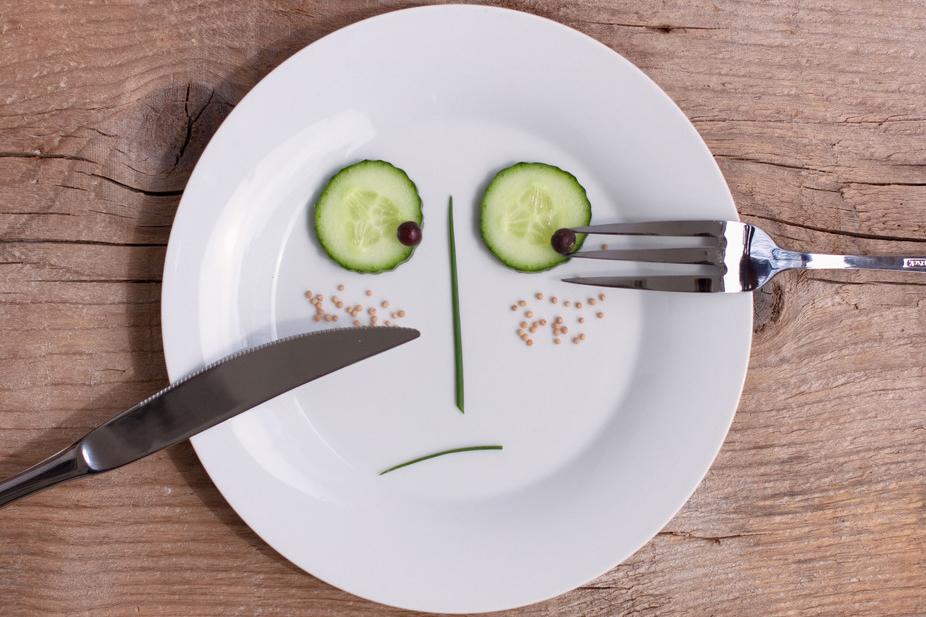Brexit and food: there is no plan, so what is the UK going to put on the table?
A year of research reveals a total lack of a plan when it comes to how Brexit Britain is going to feed itself

Your support helps us to tell the story
From reproductive rights to climate change to Big Tech, The Independent is on the ground when the story is developing. Whether it's investigating the financials of Elon Musk's pro-Trump PAC or producing our latest documentary, 'The A Word', which shines a light on the American women fighting for reproductive rights, we know how important it is to parse out the facts from the messaging.
At such a critical moment in US history, we need reporters on the ground. Your donation allows us to keep sending journalists to speak to both sides of the story.
The Independent is trusted by Americans across the entire political spectrum. And unlike many other quality news outlets, we choose not to lock Americans out of our reporting and analysis with paywalls. We believe quality journalism should be available to everyone, paid for by those who can afford it.
Your support makes all the difference.Even the British eat. But one might be forgiven for thinking that the UK government does not know this for all the attention it has paid to the implications of Brexit for UK consumers and the nation’s food system.
We have just published a report on the extent to which the government is engaging with the coming challenge of a food Brexit. It’s been a sobering process for us.
We’ve found next to no debate, ideas or external message about what this momentous shift in the UK food system might mean, either for the general public or the industry. There have been a few bland “the environment is safe with us” statements but little more than that. Meanwhile, the general direction looks set for a hard Brexit, or worse – chaos leading to a default exit without even a World Trade Organisation (WTO) negotiation. The drop in sterling already means food imports cost more.
The cupboard is bare
We have spent the year since the referendum vote talking with people up, down and across the food system. Most consumers are in the dark. They didn’t know that 30 per cent of food preparation and hospitality labour comes from the EU, and even more for seasonal soft fruits.
Many food industry bodies wanted to stay in the EU but took a neutral stance to let their members decide. This applied to organisations as diverse as farming unions (farmers voted heavily to leave despite many being entirely dependent on subsidies), consumers (who only started organising since the referendum) or the food industry (which overwhelmingly did not want to leave, having spent 50 years Europeanising supply chains).
Our report is the first independent review of what food Brexit actually means. And so far, it means mess. Those who want a soft Brexit think the UK can pick ’n’ mix just as the EU is confidently reasserting the four freedoms of goods, capital, services and people. Many Brexiters want migration controls, but don’t have a clue how to get them politically. The Cabinet is divided between soft, hard and no Brexiters. The key agencies who should advise on the negotiations have been cut. The Food Standards Agency, for instance, has had years of staff losses. It’s down to a couple of storeys in what was a full multi-storey building (and is now leaving that).
Leaving the EU means losing much of the vital food security infrastructure needed to keep the system functioning – much of which barely enters the public consciousness. That includes the European Food Safety Authority, which benchmarks quality, the Joint Research Centre, which provides baseline research, the Health & Food Audits, which covers veterinarian and other standards, and the Rapid Alert System, which informs supply chains and recalls when things go wrong. We identified at least 45 services which underpin British food and keep the industry on its toes. If and when the UK divorces the EU, and detaches itself from EU food and agricultural policy regimes, we have no idea what will replace them, given the hollowed-out state of the UK’s public sector.

European collaboration has underpinned the British food system, while UK governments since 2010 have been busy slashing what remained of national facilities.
The Brexit camp promised cost savings. We found that, actually, the UK will either have to pay more to replace these lost agencies or drop its standards and inspections. Will the UK now rebuild its food infrastructure? Or will it actually have to buy back into those same EU services we are to leave? If so, the cost saving argument evaporates. One wonders: why go? It’s absurdly inefficient.
Farm subsidies
The UK government has promised to keep farm subsidies until 2022. Subsidies, on the one hand, inflate land values but, on the other hand, also keep struggling farmers and help stablise food supplies and prices. UK farming is now tiny as an economic sector, dwarfed by even logistics (trucking food), let alone mighty retail or food service.
Our verdict is that Brexit is a giant deviation when the UK ought to be shifting its food system into what the scientific evidence says it needs to address – problems such as carbon emissions, biodiversity loss, water stress and changed land use – plus the massive public health problems which are bringing healthcare to its knees, such as heart health, obesity and diabetes. Then, of course, there are the price distortions from a century of “cheap food” policies which have encouraged people to waste food.
The real (rather than ideological) agenda ought to be the UK beginning a great transition in food consumption and production. The UK only produces 54 per cent to 61 per cent of its own food, by value. It imports 31 per cent from the EU. What happens in 19 months' time? Silence. And what about how “British” food is dependent on EU migrant labour?
Our report is a wake-up call. The UK’s food state machinery is as weak as at any time since 1939. Food history teaches that the people who make decisions only take food seriously when the public gets noisy. The prospect of a food Brexit means it is the time to get MPs and the citizenry to ask challenging questions.
The UK needs a new approach, whether in or out of the EU. A new framework should set new clear targets for UK food security, linking food supply, quality, health, consumption and environmental sustainability. We propose a new national commission on food and agricultural policy to provide oversight and review, and to be a source of advice trusted by the public.
Meanwhile, the summer rolls on without clear and explicit commitments to address food matters in the Brexit negotiations. The public surely does not believe it can live on air? Does it? The UK government looks as though it does.
Tim Lang is a professor of food policy at the University of London; Erik P Millstone is a professor at the University of Sussex; Terry Marsden is a professor of environmental policy and planning at Cardiff University. This article was originally published on The Conversation (www.theconversation.com)
Join our commenting forum
Join thought-provoking conversations, follow other Independent readers and see their replies
Comments